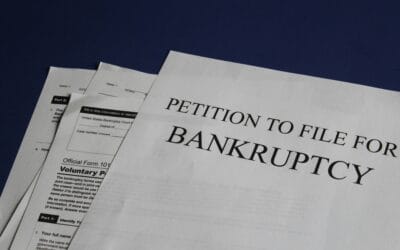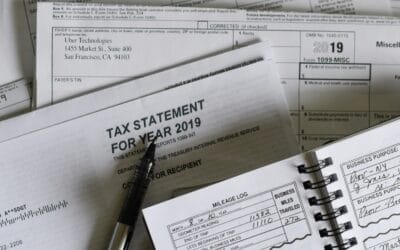How Bankruptcy Affects Your Credit Score: A Complete Recovery Guide
Filing for bankruptcy represents one of the most significant financial decisions you can make, with far-reaching consequences for your credit profile. While the immediate impact on your credit score is substantial, understanding how bankruptcy affects your credit record and knowing the path to recovery can help you rebuild your financial future more effectively.
The Immediate Impact of Bankruptcy on Your Credit Score
When you file for bankruptcy, the effect on your credit score is immediate and severe. Most individuals see their credit scores drop by 130 to 200 points, regardless of their previous credit standing. This dramatic decrease occurs because bankruptcy signals to lenders that you’ve been unable to meet your financial obligations, making you a high-risk borrower in their eyes.
The bankruptcy filing itself becomes a public record that credit reporting agencies include in your credit report. This entry serves as a red flag to potential lenders, landlords, and even some employers who review credit histories as part of their decision-making process.
How Long Does Bankruptcy Stay on Your Credit Report?
The duration bankruptcy remains on your credit report depends on the type of bankruptcy you file:
Chapter 7 Bankruptcy stays on your credit report for up to 10 years from the filing date. This form of bankruptcy involves liquidating assets to pay creditors and typically offers a faster resolution than Chapter 13.
Chapter 13 Bankruptcy remains visible for 7 years from the filing date. This type involves creating a repayment plan to pay back creditors over three to five years.
Individual accounts included in the bankruptcy may be removed earlier than the bankruptcy filing itself. Closed accounts typically fall off your credit report after seven years, even if the bankruptcy notation remains for the full duration.
Understanding the Timeline of Credit Recovery
Your credit recovery journey doesn’t begin after the bankruptcy disappears from your report—it starts immediately. Many people are surprised to learn that their credit scores can begin improving within months of filing, provided they take the right steps.
Months 1-6: Focus on establishing financial stability and avoiding new debt. Your credit score will likely remain at its lowest point during this period.
Months 6-24: With consistent positive financial behavior, you may see gradual improvements in your credit score. Some individuals report increases of 50-100 points during this timeframe.
Years 2-4: Continued responsible credit management can lead to more substantial improvements. Many people achieve credit scores in the fair to good range during this period.
Years 4-7: With persistent effort, reaching good to excellent credit scores becomes achievable for many individuals.
Strategies for Rebuilding Your Credit After Bankruptcy
Start with Secured Credit Cards
Secured credit cards require a cash deposit that typically serves as your credit limit. These cards report to credit bureaus just like traditional credit cards, making them an excellent tool for rebuilding credit. Choose cards with low fees and the potential to graduate to unsecured status.
Make Timely Payments Your Priority
Payment history accounts for 35% of your credit score, making it the most critical factor in credit recovery. Set up automatic payments for all bills, including utilities, rent, and any remaining debt obligations. Even small accounts like cell phone bills contribute to your payment history.
Monitor Your Credit Reports Regularly
Check your credit reports from all three major bureaus—Experian, Equifax, and TransUnion—at least annually through AnnualCreditReport.com. Look for errors, outdated information, or accounts that should have been discharged in bankruptcy but still show balances.
Keep Credit Utilization Low
Once you obtain new credit, maintain low balances relative to your credit limits. Aim to use less than 30% of available credit, with less than 10% being ideal for optimal scoring.
Consider Becoming an Authorized User
If a family member or trusted friend has excellent credit, ask about becoming an authorized user on their account. Their positive payment history and low utilization can potentially boost your credit score, though not all credit scoring models factor in authorized user accounts equally.
Common Mistakes to Avoid During Credit Recovery
Don't Rush Into New Credit
While rebuilding credit requires using credit responsibly, avoid applying for multiple accounts quickly. Each application results in a hard inquiry that can temporarily lower your credit score.
Avoid Predatory Lenders
Be wary of lenders who specifically target individuals with recent bankruptcies. These companies often charge excessive fees and interest rates that can trap you in a cycle of debt.
Don't Ignore Your Budget
Bankruptcy provided relief from overwhelming debt, but without proper budgeting and financial planning, you risk repeating past mistakes. Create and stick to a realistic budget that allows for both living expenses and building an emergency fund.
The Long-Term Perspective on Credit Recovery
While bankruptcy remains on your credit report for seven to ten years, its impact on your credit score diminishes significantly over time. Recent payment history and current account management carry more weight than older negative information.
Many individuals find that after two to three years of consistent effort, they can qualify for conventional mortgages, competitive auto loans, and premium credit cards. The key lies in patience, persistence, and maintaining positive financial habits.
When to Seek Professional Help
Credit counseling agencies can provide valuable guidance during your recovery journey. Look for nonprofit organizations accredited by the National Foundation for Credit Counseling (NFCC) or the Financial Counseling Association of America (FCAA).
Additionally, if you discover errors on your credit reports related to your bankruptcy, consider consulting with a credit repair attorney who specializes in bankruptcy-related credit issues.
Your Financial Fresh Start
Bankruptcy doesn’t define your financial future—it provides an opportunity for a fresh start. While the initial impact on your credit is significant, viewing bankruptcy as a pivotal turning point rather than a permanent setback can help you approach credit rebuilding with the right mindset.
The path to excellent credit after bankruptcy requires time, patience, and consistent effort. By focusing on timely payments, responsible credit use, and smart financial planning, you can gradually rebuild your creditworthiness and leave the shadows of your financial past behind.
Remember that millions of Americans have successfully rebuilt their credit after bankruptcy. With diligent effort and the right strategies, you can join their ranks and achieve the financial stability and credit profile you desire. Your bankruptcy may remain visible for up to ten years, but its power to control your financial future diminishes with each positive step you take toward recovery.











